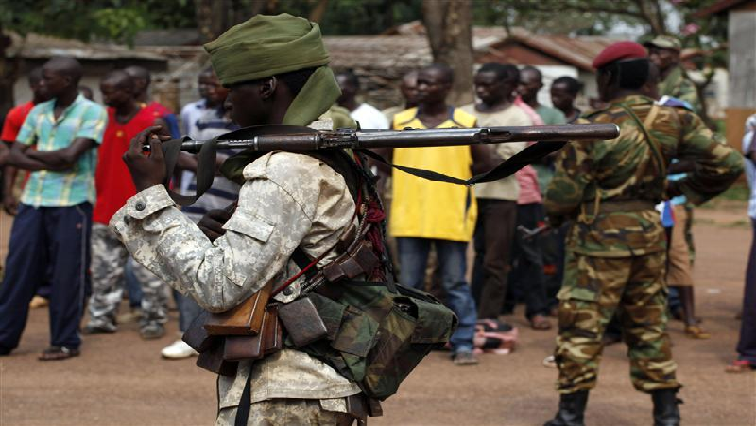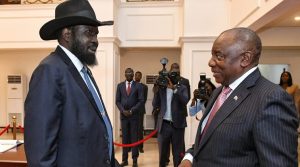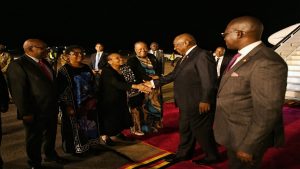Refugees fled to Sudan on Tuesday and the African Union appealed for a ceasefire in a north Ethiopian region where Prime Minister Abiy Ahmed is waging a military offensive against local leaders defiant of his authority.
About 2 500 Ethiopians have escaped across the border to Sudan from fighting in the restive Tigray region, with the exodus likely to swell fast, an official said.
Hundreds have died in air strikes and fighting amid fears that Ethiopia could slide into civil war given deep animosity between the Tigrayans and Abiy, who comes from the largest Oromo ethnic group.
With access blocked to Tigray and communications largely down, it was hard to verify the state of the conflict.
State media said federal forces had captured Humera airport, near the borders with Sudan and Eritrea, along with a road leading from the town. The Ethiopian Press Agency posted photos that it said showed federal soldiers, backed by forces from the neighbouring Amhara region, at the airport.
However, Humera residents were going about their lives normally, according to a communications office of the Tigray People’s Liberation Front (TPLF), which governs the state of more than 5 million people.
State affiliated broadcaster FANA said Ethiopia had arrested 17 military officers for disrupting communications systems used by federal forces in Tigray, exposing them to potential harm.
Abiy, who won the Nobel Peace Prize in 2019, ordered air strikes and sent troops into Tigray last week after accusing the TPLF of attacking a military base. Tigrayans say Abiy’s government oppresses and discriminates against them and behaved autocratically in postponing a national election.

ERITREA ALLEGATION
In a potential major escalation, Tigray leader Debretsion Gebremichael said the Eritrean government of President Isaias Afwerki had sent troops across the border to attack local forces in support of the federal push.
But he gave no proof and Eritrea’s Foreign Minister Osman Saleh Mohammed denied it. “We are not part of the conflict,” he told Reuters.
Eritrea and Ethiopia signed a peace deal two years ago, but Afwerki’s government remains hostile to the Tigrayan leadership after its role in a devastating 1998-2000 war.
Reuters reporters on Monday travelling in Tigray and Amhara saw trucks packed with militia fighters and pickups with mounted machine-guns rushing to the frontline for the federal government.
Warplanes have bombed arms depots and other targets, both sides say, while aid workers and security sources have reported heavy fighting on the ground.
Military and security sources in Amhara, on the side of the federal troops, have spoken of 500 deaths on the Tigrayan side and hundreds also from the national military.
The state-affiliated Fana broadcaster said federal troops had killed 550 Tigrayan “extremists” while another 29 members of local special forces and militia had surrendered.
The AU called for peace talks and an end to hostilities. But Ethiopia said mediation was only possible if military hardware in Tigrayan hands was destroyed, federal officials were freed from custody and regional leaders arrested.
WAR FEARS
The 44-year-old Abiy is Africa’s youngest leader and won his Nobel prize for democratic reforms and for making peace with Eritrea. But his militancy against Tigray has alarmed diplomats and a full-scale war could further damage an economy already reeling from the coronavirus crisis.
A former soldier who once fought alongside Tigrayans against Eritrea, Abiy took over in 2018 after a Tigrayan-led government had dominated politics since rebels from their region toppled Marxist military rule in 1991.
But his attempts to open up a repressive political climate also led to an explosion of ethnic problems, with hundreds killed and hundreds of thousands forced to flee their homes in clashes over the last two years.
Abiy believes he can quell the Tigrayan leadership militarily, diplomats told Reuters, though they are a battle-hardened group from the 1998-2000 war with Eritrea and the defeat of dictator Mengistu Haile Mariam in 1991.
TPLF forces and militia allies number up to 250 000 men and possess significant hardware, experts say.
“Operations will cease as soon as the criminal junta is disarmed, legitimate administration in the region restored, and fugitives apprehended & brought to justice — all of them rapidly coming within reach,” Abiy tweeted on Tuesday.
The TPLF has called him “merciless” with air strikes.
Redwan Hussein, spokesman of a newly-established State of Emergency Task Force for the Tigray conflict, said federal soldiers had been forced to retreat over the border to Eritrea before regrouping and returning to fight local forces.
He acknowledged that Tigrayan troops had control of a compound of the Ethiopian military’s powerful Northern Command in Mekelle, the capital of Tigray.
Ceasefire
Earlier the Africa Union, headed by President Cyril Ramaphosa, has called for a ceasefire in northern Ethiopia where federal troops continue fighting local Tigrayan forces.
AU Commission Chairperson, Moussa Faki Mahamat called for peace talks in the region.






